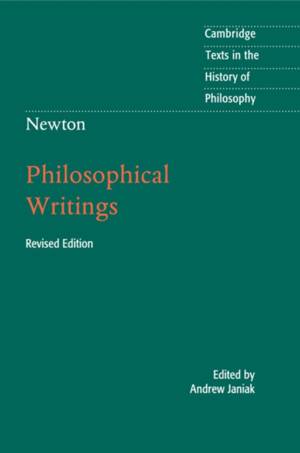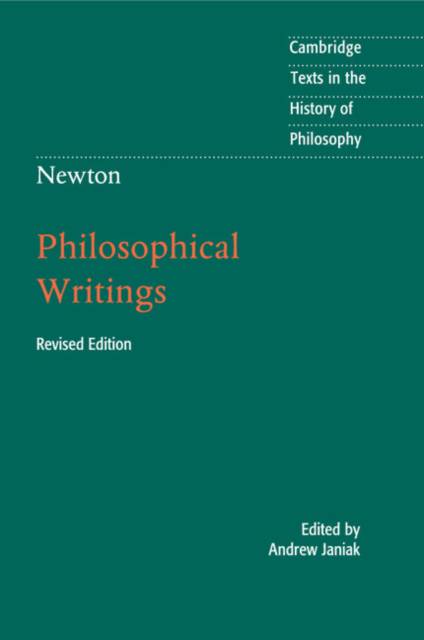
- Afhalen na 1 uur in een winkel met voorraad
- Gratis thuislevering in België vanaf € 30
- Ruim aanbod met 7 miljoen producten
- Afhalen na 1 uur in een winkel met voorraad
- Gratis thuislevering in België vanaf € 30
- Ruim aanbod met 7 miljoen producten
Zoeken
€ 136,95
+ 273 punten
Omschrijving
Sir Isaac Newton (1642-1727) left a voluminous legacy of writings. Despite his influence on the early modern period, his correspondence, manuscripts, and publications in natural philosophy remain scattered throughout many disparate editions. In this volume, Newton's principal philosophical writings, including excerpts from the Principia and the Opticks and a corrected translation of 'De Gravitatione', are collected in a single place. This newly expanded second edition of Philosophical Writings contains new excerpts from Newton's earliest optical writings, some of his unpublished reflections on the interpretation of Scriptural passages that concern the Earth's motion, and his correspondence with important figures in his day, including the theologian Richard Bentley, the mathematician Roger Cotes, and the philosopher G. W. Leibniz. The excerpts show in depth how Newton developed a number of highly controversial views concerning space, time, motion and matter and then defended them against the withering criticisms of his contemporaries.
Specificaties
Betrokkenen
- Uitgeverij:
Inhoud
- Aantal bladzijden:
- 246
- Taal:
- Engels
- Reeks:
Eigenschappen
- Productcode (EAN):
- 9781107042384
- Verschijningsdatum:
- 29/09/2014
- Uitvoering:
- Hardcover
- Formaat:
- Genaaid
- Afmetingen:
- 155 mm x 229 mm
- Gewicht:
- 476 g

Alleen bij Standaard Boekhandel
+ 273 punten op je klantenkaart van Standaard Boekhandel
Beoordelingen
We publiceren alleen reviews die voldoen aan de voorwaarden voor reviews. Bekijk onze voorwaarden voor reviews.










